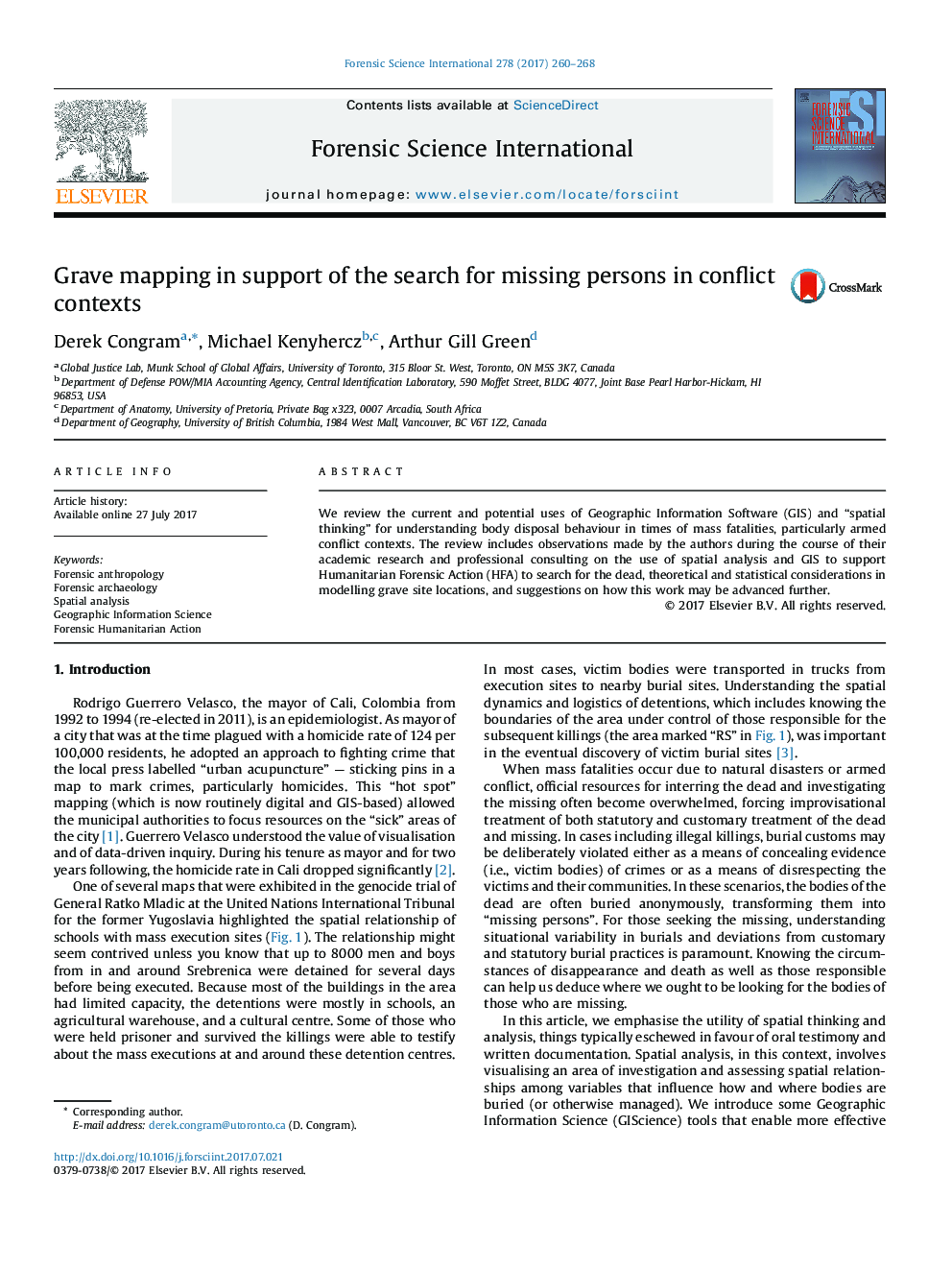| Article ID | Journal | Published Year | Pages | File Type |
|---|---|---|---|---|
| 6462317 | Forensic Science International | 2017 | 9 Pages |
â¢Thinking spatially can aid in locating and identifying missing persons.â¢Human interaction with the environment is patterned and non-random.â¢Modelling the missing with GIS is both an inductive and deductive process.
We review the current and potential uses of Geographic Information Software (GIS) and “spatial thinking” for understanding body disposal behaviour in times of mass fatalities, particularly armed conflict contexts. The review includes observations made by the authors during the course of their academic research and professional consulting on the use of spatial analysis and GIS to support Humanitarian Forensic Action (HFA) to search for the dead, theoretical and statistical considerations in modelling grave site locations, and suggestions on how this work may be advanced further.
